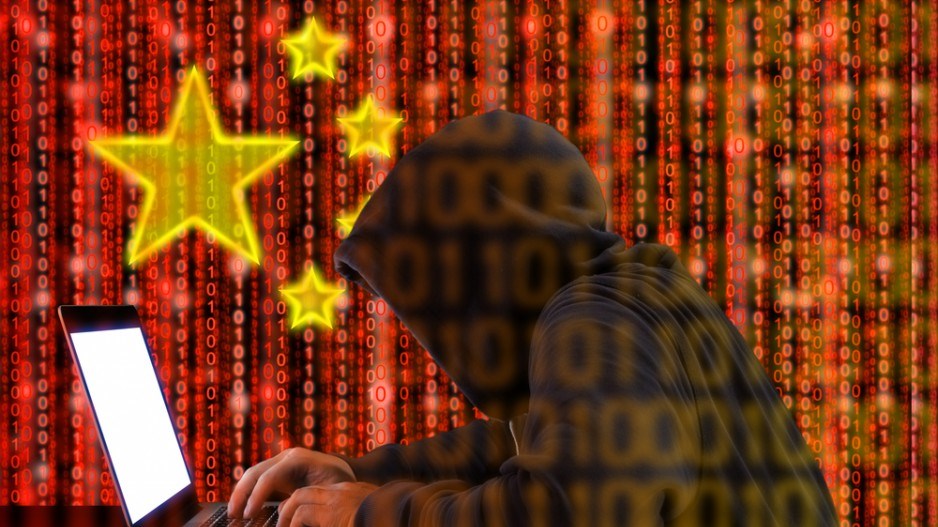China poses a significant national security cyber threat to Canada and uses businesspeople and mobilizes Chinese students in Canada to influence politics, says a new report to Parliament.
“China is known globally for its efforts to influence Chinese communities and the politics of other countries,” said the National Security and Intelligence Committee of Parliamentarians document released Tuesday, April 9. “The Chinese government has a number of official organizations that try to influence Chinese communities and politicians to adopt pro-China positions, most prominently the United Front Work Department.”
The report is the first to Parliament from a cross-party committee of MPs offering a broad look at Canada’s various intelligence services.
2019-04-09 Annual Report 2018 Public En by Emma Crawford Hampel, BIV.com on Scribd
The report pointed to infiltration of National Research Council of Canada by a Chinese state-sponsored actor in 2014, “causing significant costs for clean-up and remediation.”
Fears of China as a growing cyberthreat were put under the spotlight with the December arrest at Vancouver airport of Chinese telecommunications giant Huawei’s chief financial officer Meng Wanzhou. Currently on $10 million bail, Meng is wanted on an extradition request from the United States.
Shenzen, China-based Huawei is a leader in manufacturing equipment for next-generation 5G mobile networks to bring near-instantaneous connectivity for smartphones.
However, several countries – particularly the so-called five-eyes nations of Canada, the United States, the UK, Australia and New Zealand – fear Huawei’s involvement would give Beijing access to critical infrastructure. Several have banned the company but Canada, already under pressure from Beijing following Meng’s arrest, has yet to do so.
Huawei also provides millions of dollars to Canadian universities – particularly engineering departments. It is also the supplier of equipment for Compute Canada, a partnership of 34 Canadian academic institutions organized into four regions.
The partnership provides academic research computing systems of Canadian research in academic and industrial sectors. Huawei entered into a master agreement February 15, 2017, to provide the equipment. The deal was inked with Burnaby’s Simon Fraser University (SFU) as the lead institution, documents obtained by Glacier Media under access to information laws show. The lead schools on the initiative are SFU, the University of Victoria, the University of Toronto and the University of Waterloo.
When asked if they were doing any due diligence around Huawei and its potentially taking information from their schools, several universities have said the concern was not theirs as they had not been advised by Ottawa to take precautions.
“That’s just bananas,” said Eric O’Neill, a security strategist for Massachusetts-based cybersecurity firm Carbon Black and former FBI spycatcher.
He said Chinese agents are being seen more and more as they attempt to recruit on U.S. school campuses.
The report said the former director of the Canadian Security Intelligence Service, Canada’s spy agency, raised concerns about Chinese influence activities against Canadian elected officials in 2010 and that Canada’s former ambassador to China David Mulroney said in 2017, “China used diaspora groups and mobilized Chinese students to influence Canadian politics.”
The student issue was highlighted this week in a Glacier Media report about Chinese government-sponsored student groups coming under the spotlight in Canada, including in B.C. where Kamloops Thompson Rivers University authorized a military-style Chinese flag raising ceremony.
Further, the report said, in 2016, the issue of wealthy Chinese businessmen with close connections to the Communist Party of China making political donations in Canada was raised, an issue also seen in other countries.
And, it said, media and academic reports point to Chinese attempts to influence government through significant political donations, influencing Chinese-language media and covertly support community groups and demonstrations.
“Chinese police and security officials have also been caught operating without permission in foreign states to persuade or coerce Chinese fugitives to return to China,” the report said.
That was the case when Lai Changxing, dubbed China’s most wanted man, was fighting extradition from Canada in Vancouver, wanted in his homeland on corruption charges. Hearings were told of the presence of so-called ‘420 teams’ from China operating in Canada to try and influence Lai and those around him to return.
It’s not just China identified in the report as conducting covert operations in Canada. Russia is also identified as among a handful of states operating espionage and foreign influence activities, the report said.




